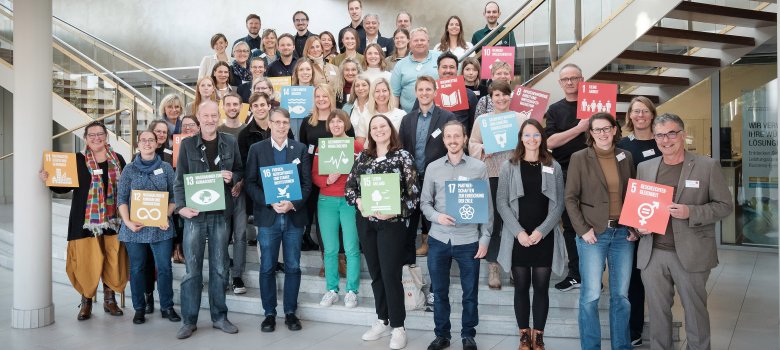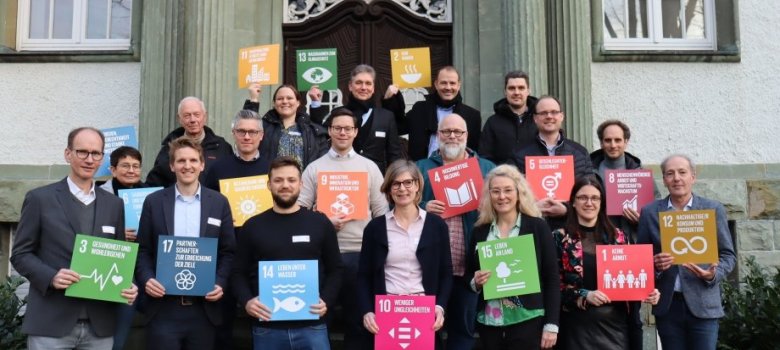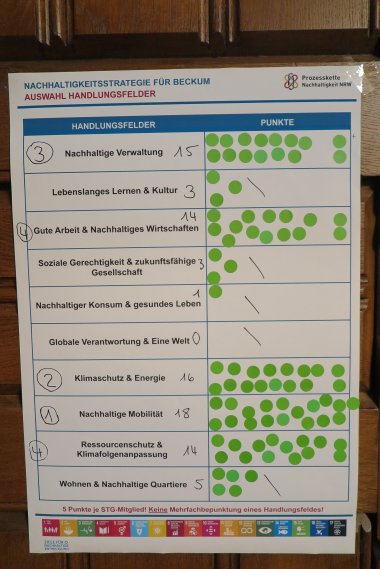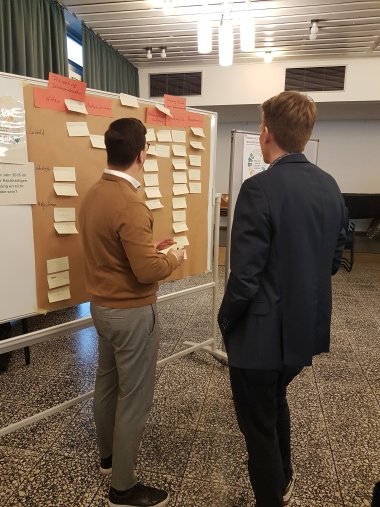Sustainability strategy of the city of Beckum
The town of Beckum successfully applied to take part in the "Process Chain Sustainability NRW" project organised by the NRW Ministry of the Environment and will now receive support for the creation of a municipal sustainability strategy until the end of 2024.
Resilient and sustainable municipal development is increasingly coming into focus. Advancing climate change, the loss of biodiversity and social inequalities are examples of worsening ecological and social challenges. With the development of an integrated sustainability strategy, the city of Beckum now wants to develop concrete goals and measures to make itself sustainable and liveable.
The town of Beckum is one of ten selected model municipalities in the project "Process Chain Sustainability NRW" (PKN NRW), which are being supported in the development of individual sustainability strategies. The project is made possible by funding from the Ministry for the Environment, Nature Conservation and Transport of the State of North Rhine-Westphalia (MUNV).

The State Working Group Agenda 21 NRW e.V. (LAG 21 NRW), which has already supported more than 40 local authorities in drawing up a sustainability strategy, was commissioned with the implementation.
The first term of the project is now starting and will run until the end of 2024. The participating municipalities will develop their strategies in the context of the global sustainability goals of the United Nations, which were adopted in 2015 as part of the 2030 Agenda. The German Sustainability Strategy and the NRW Sustainability Strategy will also be taken into account when developing the municipality-specific sustainability goals.
The strategies are developed from the ground up in a participatory and cooperative manner. Various institutions from administration, politics, civil society, business and science are involved via a steering group. Over the course of five meetings, the 2024 steering group will develop an integrated programme of action with guidelines, strategic and operational goals and concrete measures for sustainable development. The basis for this is a status quo analysis, which will be compiled over the coming months. This status quo analysis presents the existing sustainability activities of the city of Beckum and analyses current developments with the help of key figures. The project is being coordinated locally by Climate Protection Manager Max Hegemann and the Head of the Environment and Greenery Department, Tobias Illbruck. The focus of a municipal sustainability strategy for the town of Beckum lies in the area of urban development. At the end of the project, the sustainability strategy will be adopted by the political bodies and implemented.
1st meeting of the steering group:
Beckum sets out on the path to a sustainability strategy

The town of Beckum is one of 10 model municipalities in North Rhine-Westphalia taking part in the "Process Chain Sustainability NRW" project and is developing an integrated sustainability strategy that combines social, economic and ecological objectives.
The first meeting of the steering group in Beckum's Ständesaal has now been launched. The steering group with representatives from companies, political groups, the municipal community and the town of Beckum will develop the content of the sustainability strategy and, together with two project managers from the Landesarbeitsgemeinschaft Agenda 21 NRW e.V. (LAG 21 NRW), work out the five fields of action for which goals, guidelines, values and measures are to be developed.

With the help of a "gallery walk", the participants had the opportunity to familiarise themselves with the ten fields of action available for selection, which are derived from the 17 global sustainability goals specifically for municipalities, and then cast their vote for five fields of action.
During the event, the members of the steering group voted in favour of the following fields of action: sustainable administration, good work & sustainable management, climate protection & energy, sustainable mobility and resource conservation & climate impact adaptation.
The sustainability strategy will now be developed with these areas of action in the upcoming meetings of the steering group.
The aim of the project is to contribute to the implementation of the 2030 Agenda for Sustainable Development at municipal level. The "Process Chain Sustainability NRW" project runs until the end of 2024 and ends with the adoption of the action programme by the Beckum City Council.
The project is being implemented by LAG 21 NRW on behalf of the Ministry for the Environment, Nature Conservation and Transport of the State of North Rhine-Westphalia (MUNV).
2nd meeting of the steering group:
Dr Christian Hofbauer, Head of the Environment and Building Department of the City of Beckum, warmly welcomed the participants to the second steering group meeting of the sustainability strategy. He emphasised the importance of the topic and thanked those present for their commitment to Beckum. Maximilian Hegemann was also introduced as the new coordinator of the sustainability strategy. The team leader of the sustainability strategies at the Agenda 21 NRW state working group gave an overview of the meeting and explained the process for creating the strategy.

Tobias Illbruck, Head of Environmental and Green Services and Deputy Coordinator of the City of Beckum, briefly looked back at the previous meeting, in which the fields of action were prioritised. These include resource conservation & climate impact adaptation, good work & sustainable management, sustainable administration, climate protection & energy and sustainable mobility.
The research assistant from LAG 21 NRW explained the importance of guidelines and goals for the sustainability strategy and guided the participants through the methodology for developing these goals up to the year 2035. The "thinking in writing" method was used to record visions and ideas for the future for Beckum and to organise and discuss bundles of content.
An outlook for the next steps is the formulation of the guidelines and objectives that will be developed in preparation for the next meeting.
